The 5 Best Roofing Companies in Fayetteville, NC for 2024
How do you find the best roofers? Ask an experienced roofing contractor who knows all the other roofing contractors in Fayetteville NC!
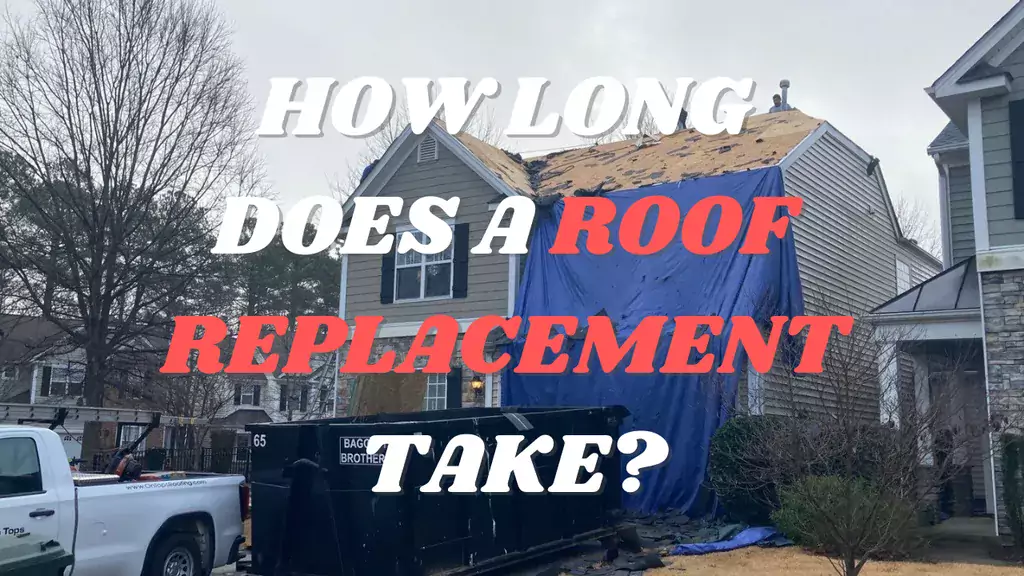
In the roofing industry, we all are aware of how long a roof replacement should be taking, but it’s very often one of the first questions that we get from homeowners looking to start their project.
People get worried thinking about their roof being exposed for a long period of time, as well as having their driveway blocked off, and the noise levels that come with this kind of construction project. Roof replacements can be pretty intense, as it literally involves stripping your home of a lot of protective materials, and putting on entirely new ones.
As you can imagine, this is a fairly invasive procedure, so we completely understand why homeowners have so many concerns about the whole thing.
Since we’ve replaced more than 15,000 roofs, we’ve got a pretty solid idea of how long it takes for all kinds of houses. In our efforts to become a trusted source of information for homeowners in the Raleigh area, we want to share that experience to help you feel as comfortable as you can before you even start your own roofing project.
In this blog, we’re going to be going over:
Alright, let’s get started!
To get to the answer quickly, the average roof replacement, on a normal sized home, will take pretty much the entire day. That being said, some smaller homes can be replaced by the middle of the afternoon, and some larger homes may take two to three days to finish the project. This is all going to be dependent on the weather and other factors, but we’ll get into that in more detail soon.

We tell our homeowners to have one to two days blocked off where your daily routines may be altered by the replacement process. This is because the roofing crews and materials get to the jobsite as early as 6:30 or 7:00 AM so that they can get started early and not be doing the bulk of the labor during the heat of the day.
So, we ask that homeowners be prepared by parking their vehicles or anything else that they would need outside of their driveway and garage. That way they don’t get blocked in when the dumpster and materials arrive.
Roofing crews will often work to make sure everything gets done in one calendar day, but as we mentioned, that can be affected by numerous different things, so let’s get into those now!
The biggest factor in determining how long the roof replacement process will take is, you guessed it, the size of the roof that needs replacing! That, along with the weather, time of year, and condition of the roof all also play a pretty significant role here.
Naturally, the larger the roof is, the longer it will take to replace it. There can only be so many people working on it at once, and if the crew rushes to get something finished, errors will likely be made during the installation.
The size of your roof isn’t the only big thing that will affect this though, as we roofers also plan for the complexity of your roof. Essentially what that means is how many penetrations, walls, hips, and valleys that your roof has, as well as how steep it is. A fairly low sloped gable roof with a few pipes and vents won’t take any added time. A roof that has different pitches, chimneys, maybe a dormer, and places where surfaces intersect, however, will need lots of special considerations and additional materials installed, like flashing.
All of that leads to time, and cost, added on to your project. So if you have a larger, more complex roof, plan for a couple of days to be needed for your roof replacement.
These two factors are pretty correlated, as the time of year plays a big role in what the weather is like, so we’ll address them both at the same time. The time of year affects the length of a roof replacement by dictating the amount of daylight hours that roofers can work with, as well as the temperature.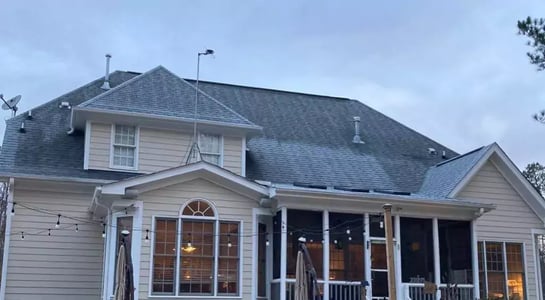
In the winter, when there’s less amount of daylight available, roofers will not be able to work as long into the evening, or as early in the day. Similarly, asphalt shingles need the temperature to be at least 40 degrees when being installed, otherwise they may not adhere to the roof properly, and can even crack when nailed through, if it is cold enough.
The heat of the summer has similar effects, but in different ways. The day is much longer, which of course helps speed up the roof replacement, but if the day is too hot, the crew will need to take much more frequent breaks in order to stay safe on the roof. Most roofs are made of asphalt so they can be as much as 20 degrees hotter in direct sunlight than on the ground. Additionally, if the shingles are installed at too high of a temperature, they can be very easily scuffed and scarred, which reduces their effectiveness, and just looks bad.
If there’s a chance of rain in the forecast, there’s also a pretty good chance your project will need to be delayed. Roofing work can still be done on a rainy day, but not while there is rain coming down, so your contractor will have to work with you to find a time when the work can be done safely.
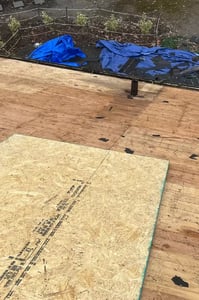
The condition of your roof will also play a role in how long it takes to replace. The more damage your roof has sustained over the years, the more likely your roof decking has started to take water damage. Once it starts to rot, the sheets of roof decking will also need to be replaced during the roof replacement project.
This step will occur after the older materials have been torn off, but before any of the new go on. Depending on how much decking is necessary, it could add a few extra hours to the project, especially if the decking needs to be cut to fit any spots on the roof.
Now that you know how long the whole roof replacement takes, are you wondering what exactly is going on this whole time?
The steps of a roof replacement are going to be more or less the same each time, as the process doesn’t change much from house to house.
First, the crew will prep your house by tarping over any sensitive areas like porches, or bushes and flower beds. If necessary, a good crew will take extra steps to make sure that your property stays safe. This is when the dumpster and materials will arrive. These will go in your driveway, so it’s a good idea to make sure you have what you need cleared out the night before your roof replacement.
Next up the tear off will start, which is exactly what it sounds like! The crew will scrape the old shingles and materials off the roof, reducing it down to the decking. Then any damaged decking will be replaced, and it will be ready for the install.
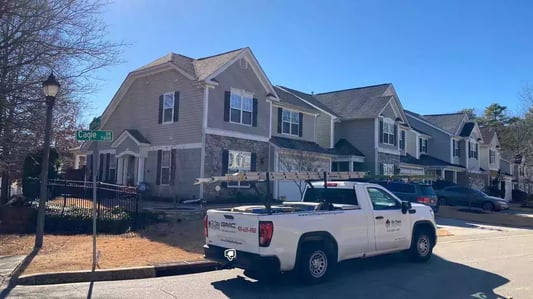
During the install, a good roofing company will install a full roofing system, including, in this order: drip edge, ice & water shield, flashing, underlayment, and starter shingles, before putting on the main shingles that you’ve picked out. After the shingles are put on, a ridge cap will be installed on the top of your roof, the crew will clean up any of the mess below, and the process will be complete!
Obviously this was a pretty quick summary of all that happens during the job, but if you want to read through in more detail, check out our blog on the 9 Steps to Replace Your Roof!
On Tops Roofing has been helping Raleigh, NC homeowners through their roofing journeys since 1991! With over 15,000 roofs replaced, we’ve got the experience to handle whatever your roof needs!

How do you find the best roofers? Ask an experienced roofing contractor who knows all the other roofing contractors in Fayetteville NC!
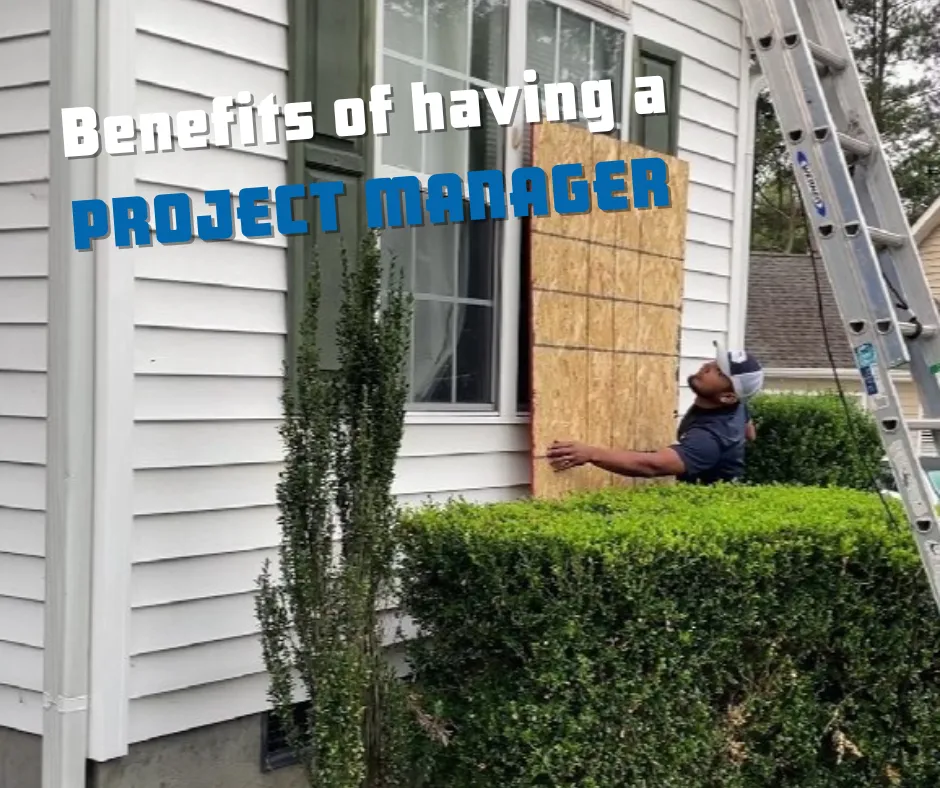
A roof replacement is a substantial undertaking, and the key to a successful project often lies in the hands of the project manager. This individual...
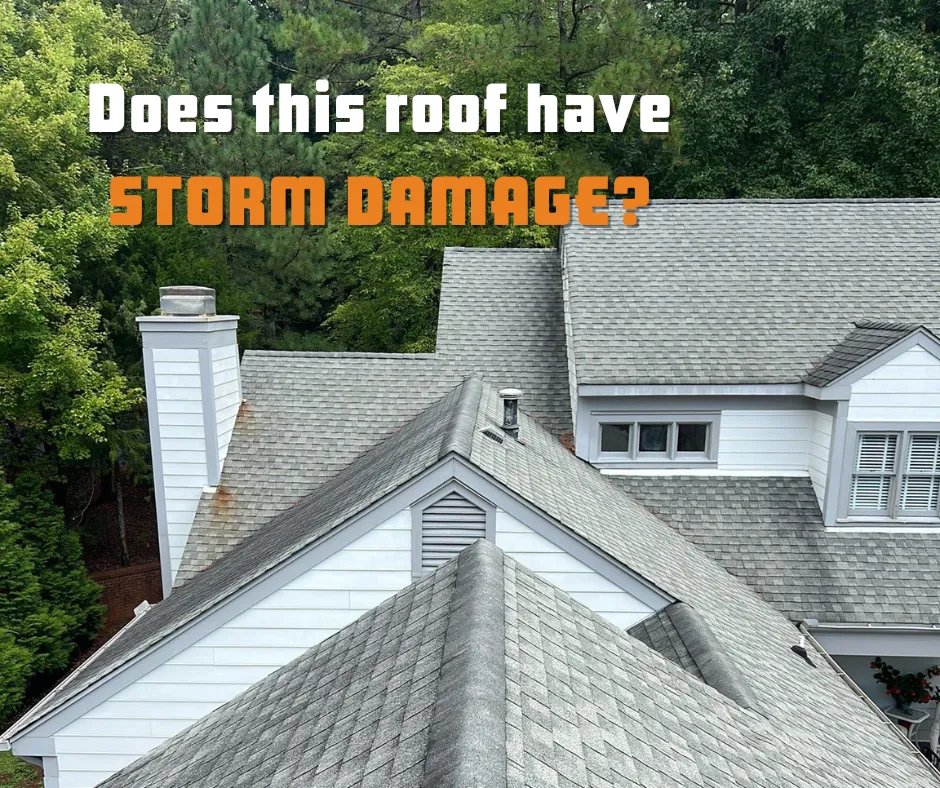
If you’ve recently experienced a storm, you should probably take some time to investigate your roof for signs of damage left by that storm.